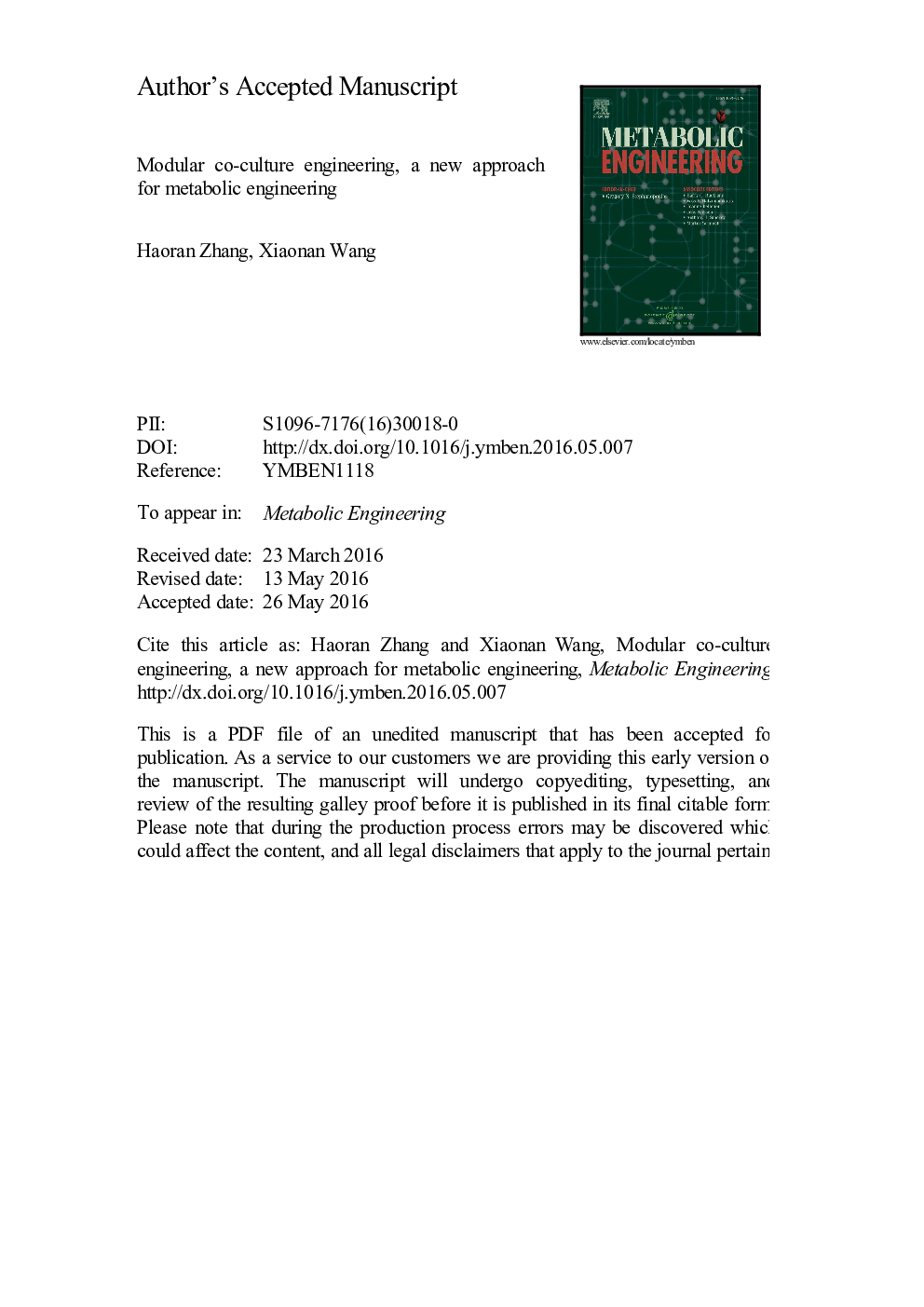| Article ID | Journal | Published Year | Pages | File Type |
|---|---|---|---|---|
| 6494233 | Metabolic Engineering | 2016 | 30 Pages |
Abstract
With the development of metabolic engineering, employment of a selected microbial host for accommodation of a designed biosynthetic pathway to produce a target compound has achieved tremendous success in the past several decades. Yet, increasing requirements for sophisticated microbial biosynthesis call for establishment and application of more advanced metabolic engineering methodologies. Recently, important progress has been made towards employing more than one engineered microbial strains to constitute synthetic co-cultures and modularizing the biosynthetic labor between the co-culture members in order to improve bioproduction performance. This emerging approach, referred to as modular co-culture engineering in this review, presents a valuable opportunity for expanding the scope of the broad field of metabolic engineering. We highlight representative research accomplishments using this approach, especially those utilizing metabolic engineering tools for microbial co-culture manipulation. Key benefits and major challenges associated with modular co-culture engineering are also presented and discussed.
Related Topics
Physical Sciences and Engineering
Chemical Engineering
Bioengineering
Authors
Haoran Zhang, Xiaonan Wang,
